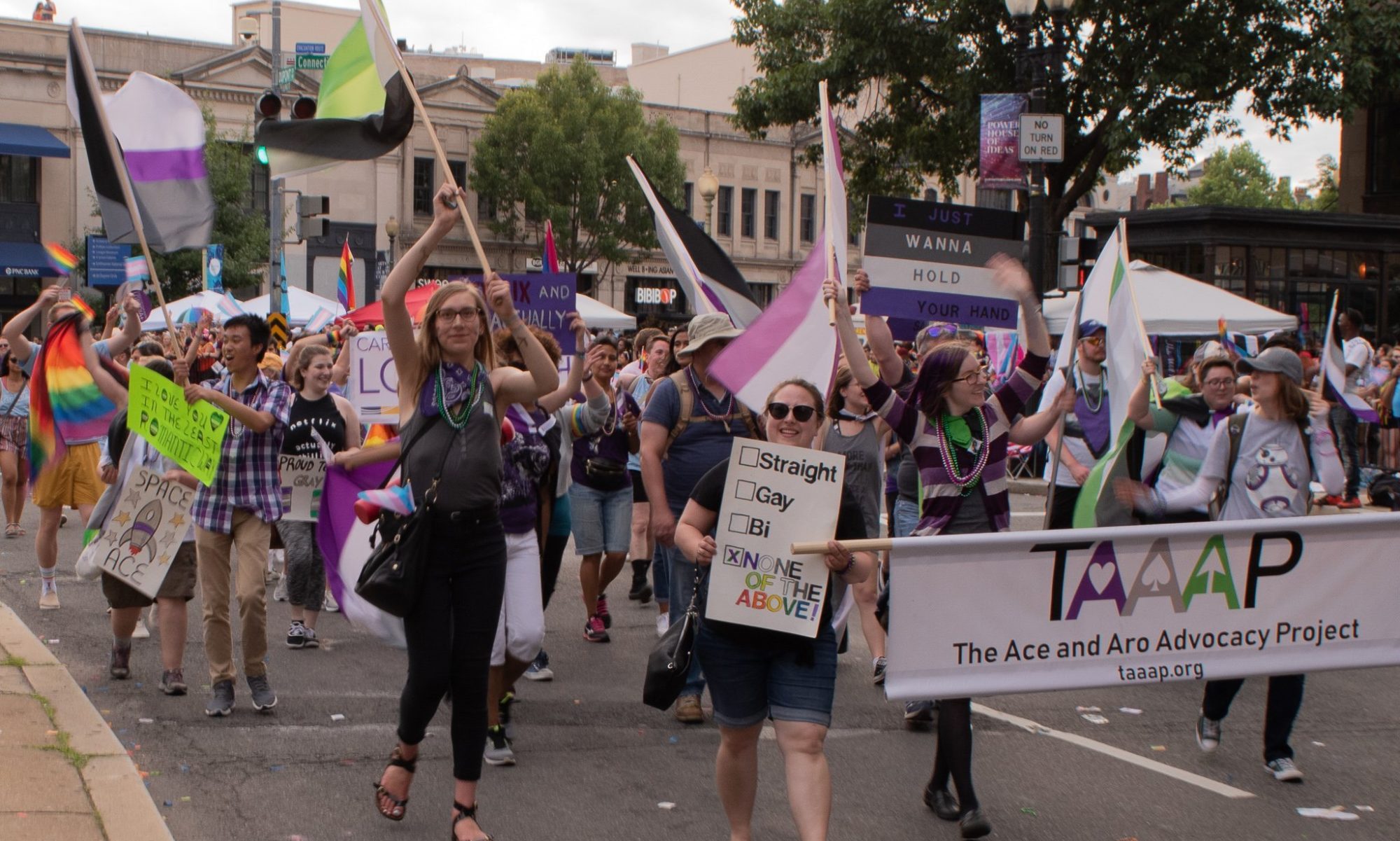Aspec Voices is a series of articles that TAAAP started in October of 2021 to highlight underrepresented, unseen, and marginalized communities within asexual and aromantic communities.
We started this project because of a conversation on Twitter discussing the lack of representation of asexual men and masculine-aligned people in articles focused on asexuality. We realized that most articles about asexuality (as there are very few about aromanticism at all) featured white, English-speaking women or nonbinary people in their twenties living in western countries. These people usually identify as asexual and potentially also as aromantic. Articles featuring them are frequently simplistic and present asexuality (and aromanticism, if it’s mentioned at all) as a monolith.
In addition, TAAAP and its members have been featured in media often enough to know that journalists frequently trim quotes, which removes nuance. Sometimes this is for clarity or word count, but frequently it is to create a narrative around our identities – a narrative that almost never captures the complexity of the experiences found within our communities.
We decided we would create a project to challenge this: a series that would ask very simple questions that are almost identical in every iteration and focus in on specific parts of ace and aro communities to tell their stories. Originally, we planned to just create articles for Ace Week and Aromantic Spectrum Awareness Week, but we found that these articles resonated with many people – some of whom were happy to see people like them, and others who were excited to learn about experiences and perspectives different from their own. Most of all, the people featured in our articles were so glad to be able to share their experiences that we decided that it was a project worth continuing.
As the Aspec Voices series grew, we intentionally guided our editorial practices around several central ethical principles. First, we do not edit responses at all, except occasionally for spelling and grammar. In other words, we do not cut down responses or censor them at all. We adopted this principle because the goal of the series is to enable people to express themselves and share the parts of their experiences that they think are important. We believe each person is the expert on their own experiences; we can serve as a connector and amplifier, but we cannot (nor do we want to!) shape narratives that are not our own. Additionally, it is important to us that community members are able to share their stories with as much anonymity as they require or prefer – we list the names or pseudonyms that people give us, and we tell them that they can choose to be anonymous. Because of stigma around aspec identities and experiences (from both inside and outside the community), we know that community members may not feel safe to share their experiences and perspectives if they do not get to set their own boundaries around anonymity.
TAAAP does not necessarily share all of the perspectives included in each article – some individual contributors are advocates with TAAAP, but most are not. Just because a submission is included in the Aspec Voices series does not mean that TAAAP endorses its perspective. In addition, community members come from a variety of cultural backgrounds and have diverse understandings of some of the concepts we discuss, and they define their own identities and experiences within those contexts. We believe strongly in identity descriptivism rather than prescriptivism or essentialism – in other words, people use the labels that they feel best describe themselves and their experiences. We do not require they prove themselves, as they know their own identities best. We also strive to foster an aspec community that is inclusive and welcoming to everyone. Therefore, we never turn away any contributors unless they explicitly say they do not fit the perspectives we are trying to feature.
Because we include all contributors and do not edit for length (our original articles asked for answers to be no longer than 40 words, but we no longer include that requirement), some of our articles are multiple parts, based on how many people volunteer to contribute. This does not mean that some subjects or populations are more important to us than others.
The principles that guide the Aspec Voices series align with our Code of Ethics and our Mission Statement – our primary objective in posting these articles is to empower members of of our community to express themselves, provide opportunities for aspec people to feel seen or to learn about unfamiliar experiences, and collect narratives of aro and ace people. We are honored that members of the aspec community trust us with their stories, and we look forward to continuing to build out this archive to represent the full diversity of our community.
